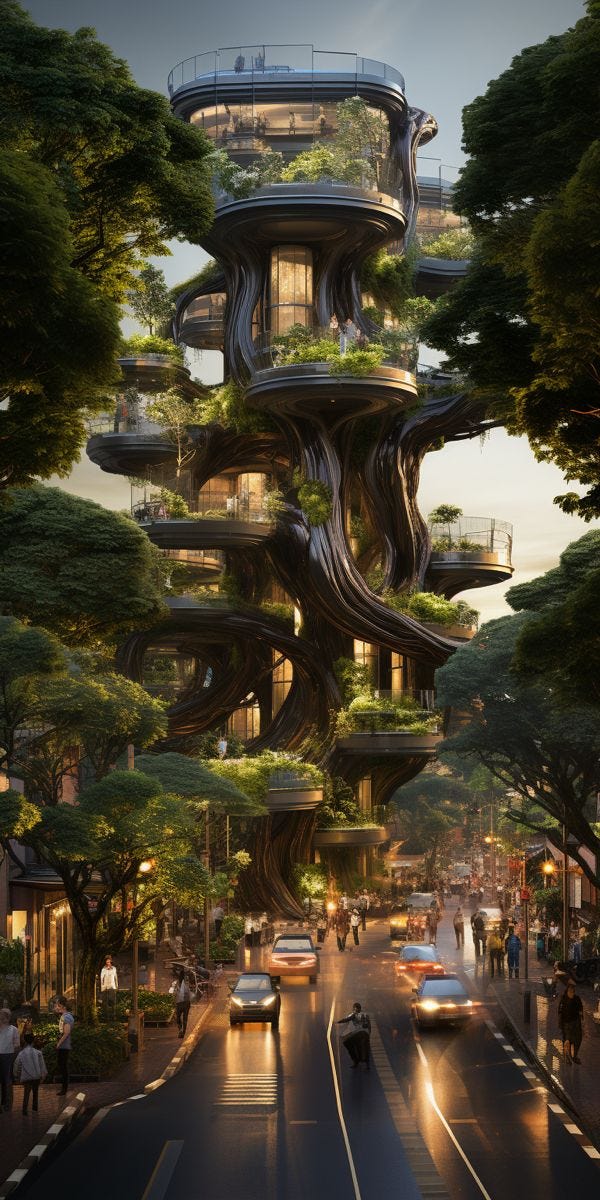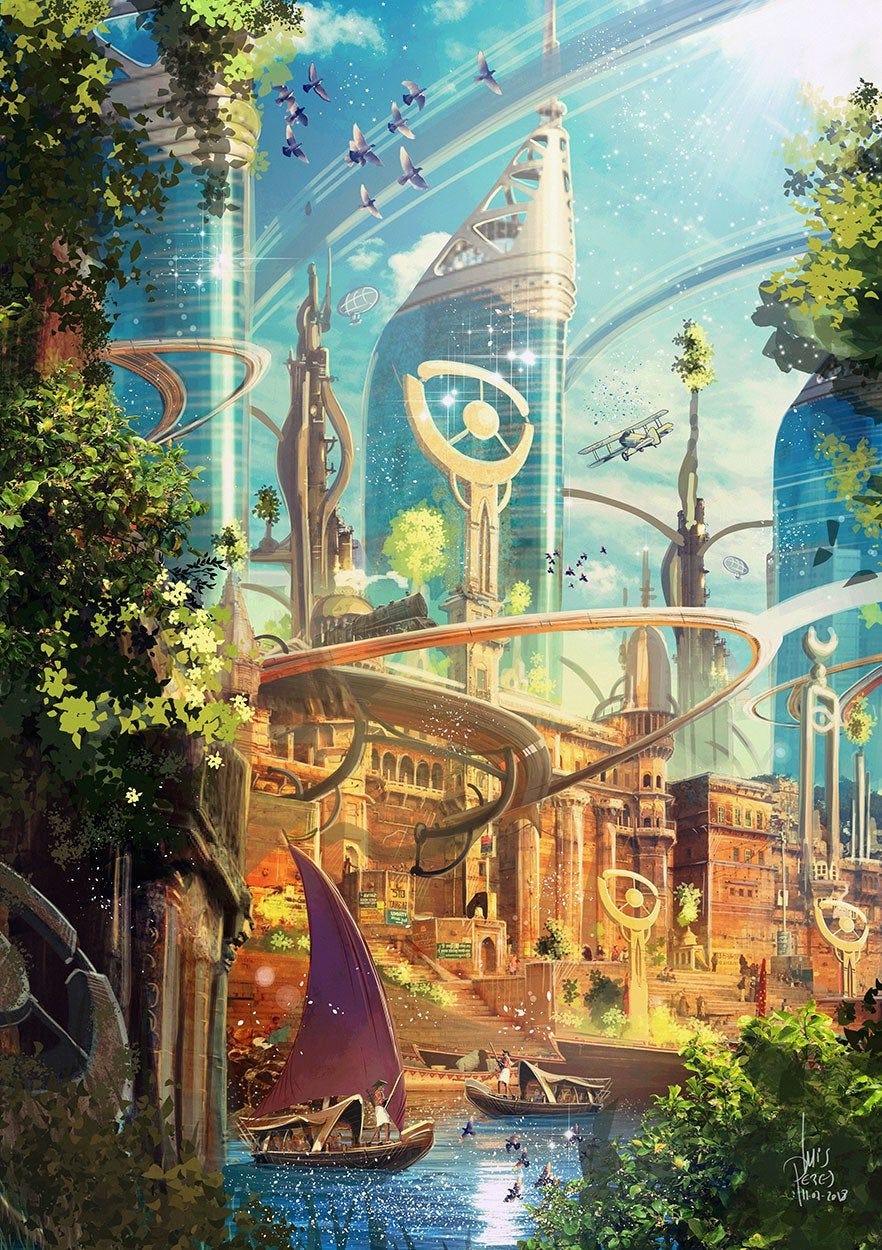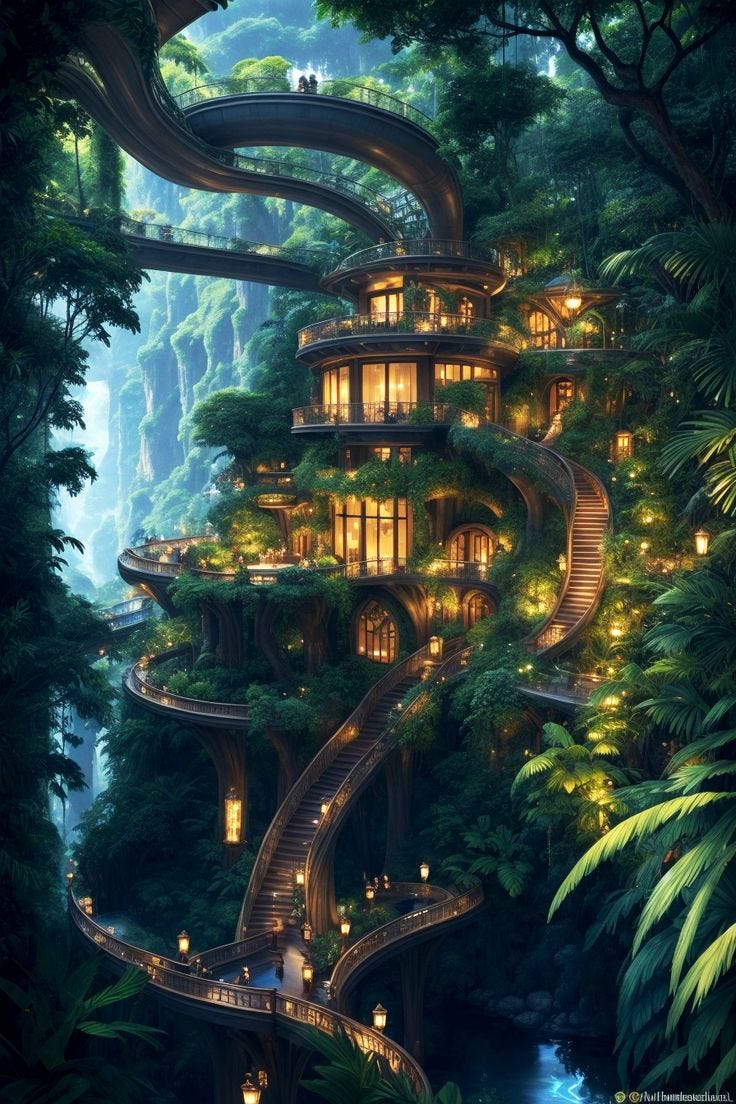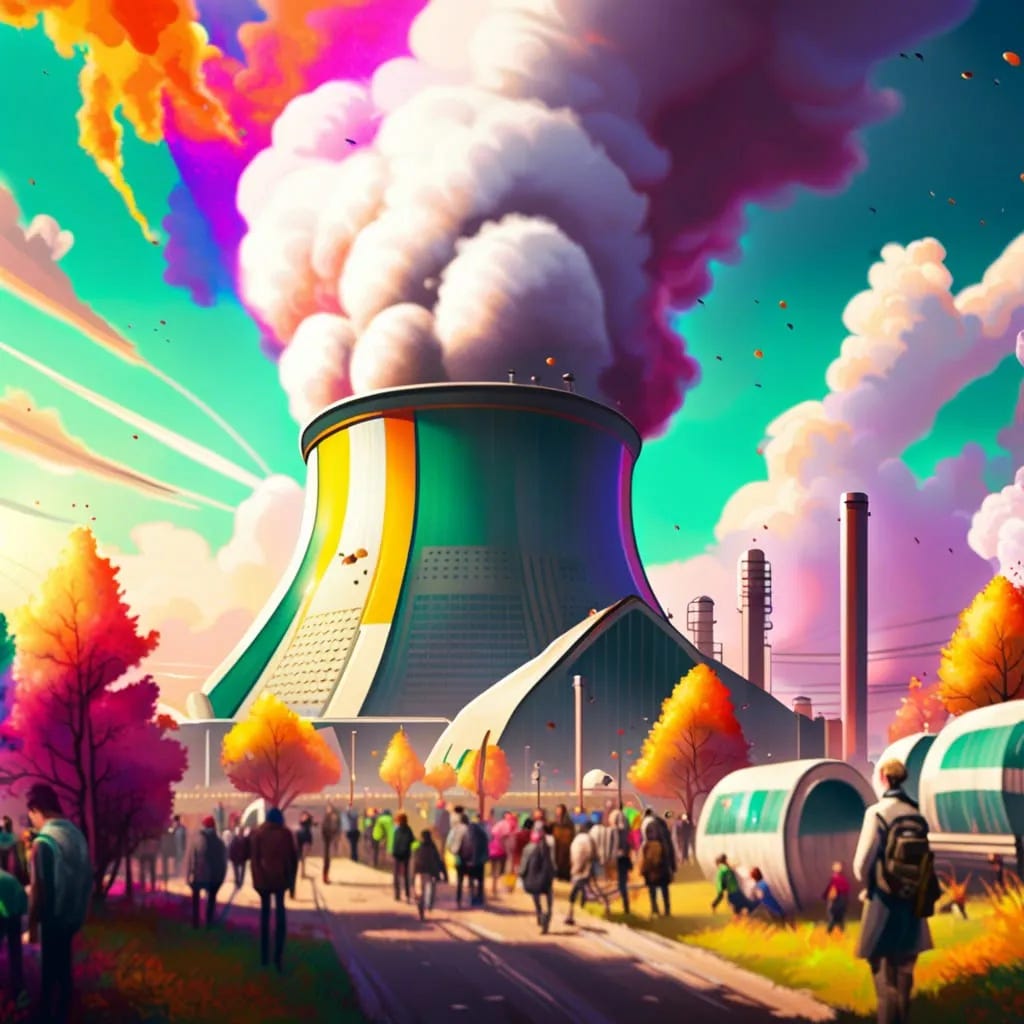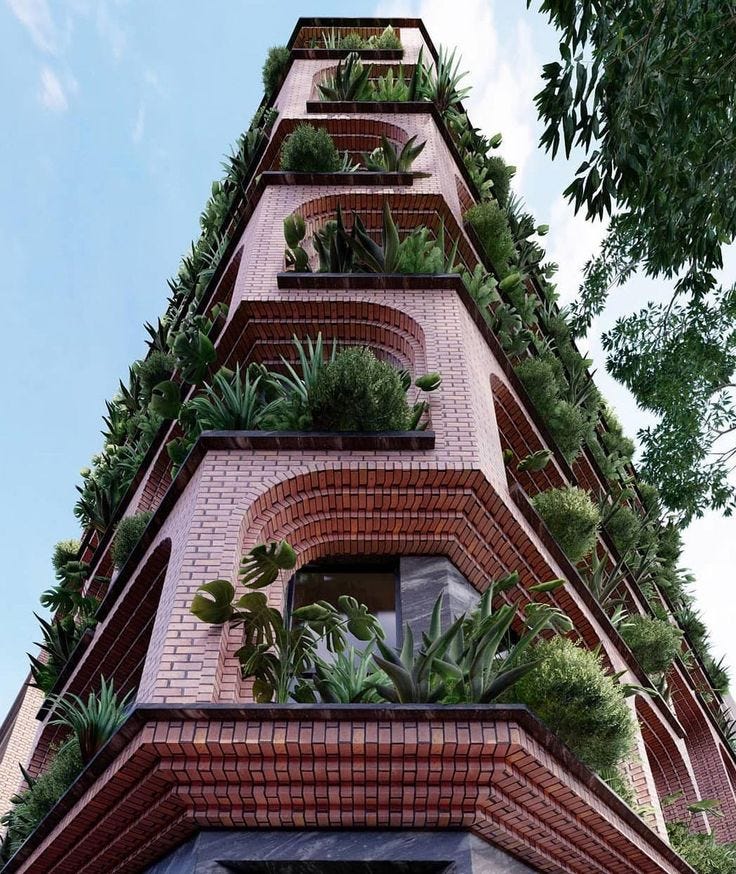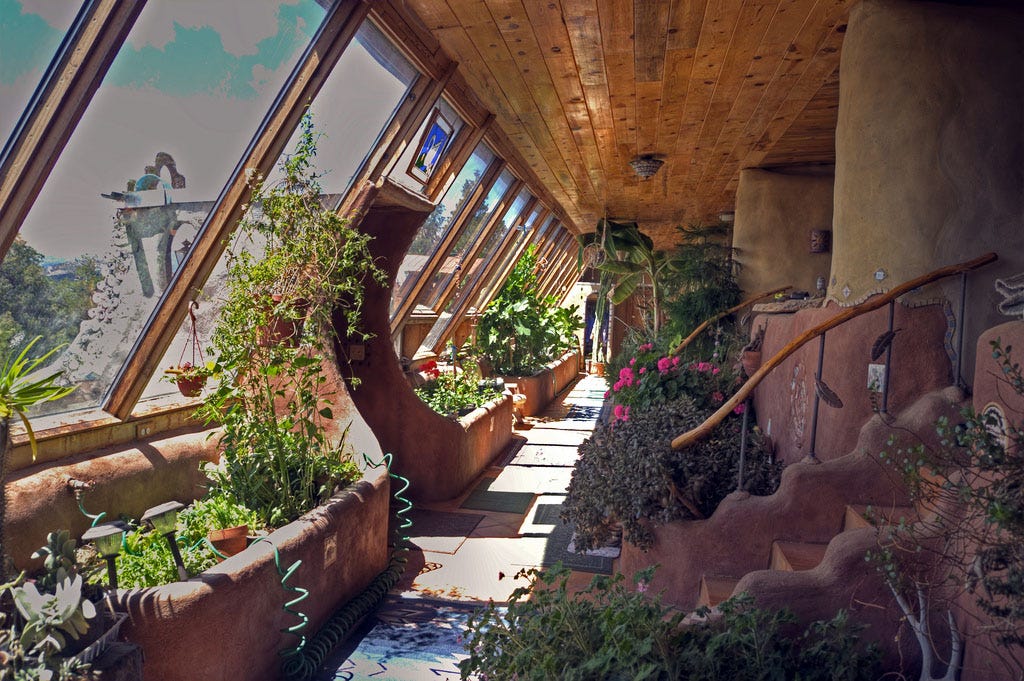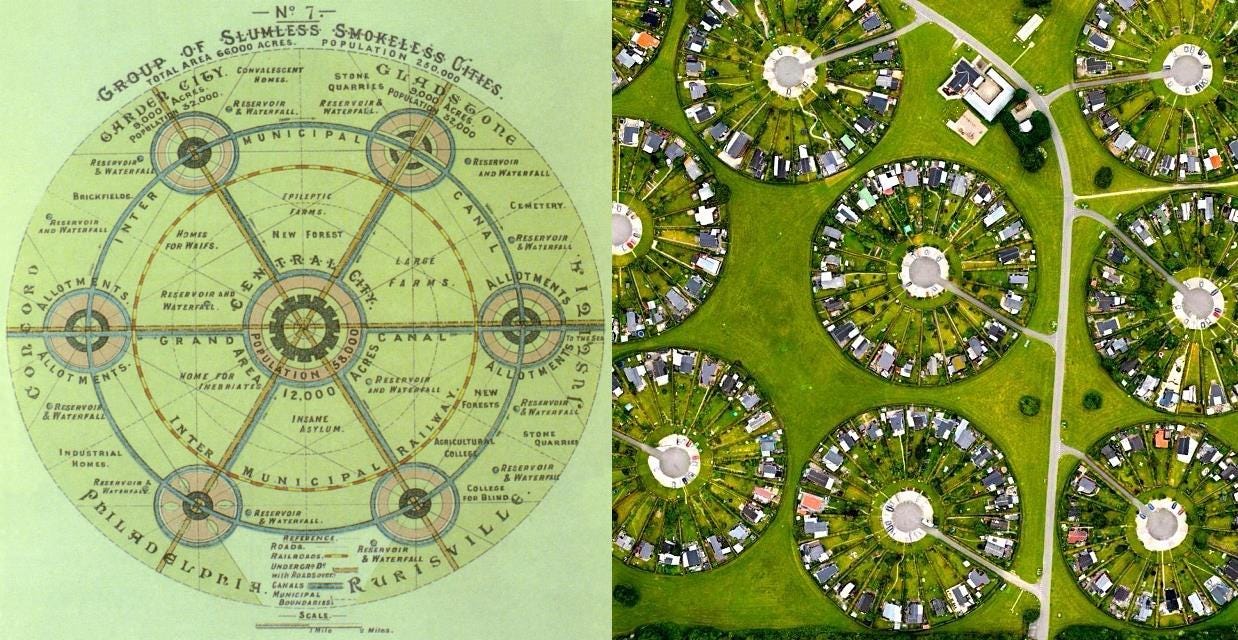Last post I talked about what solarpunk is and why its interesting. This time I want to think about what kind of governance might match up with a solarpunk future.
If we want to bring about a solarpunk future, we need ways to make that happen. Of course we can do many small things to make our personal lives greener and brighter. But solarpunk is a big dream and it wouldn’t be punk if it wasn’t calling for radical change.
If we want the radical change required for a solarpunk a reality, we first need to figure out what changes are needed. What about our current world has stopped us from building the solarpunk future we can imagine? Why aren’t we already living in a solarpunk world?
Problems
The last 100 years has been an era of constantly growing and centralizing governments. In the 1800s, pretty much all governments spent less than 15% of their nation's GDP but by the 1980s, most countries were spending over 40%. While the growth of governments has slowed since then, it hasn't stopped. We also have seen a trend where national governments have become ever more important vs regional and local governments.
"These governments become less democratic, more corrupt, more bureaucratic and more beholden to special interests... We see government at every level losing its ability to act with authority, maintain order, mobilize emergency resources, build lasting infrastructure, provide public services, and otherwise be effective in the lives of its citizens. " - Andrew Dana Hudson
While in the 1950s, western national governments were often seen to be supremely competent, to have the best minds and best information. But today very few people trust government organizations to be efficient or even effective. In the US there is the constant threat, many times realized, of government shutdown. Even those who call for more government involvement acknowledge the frequent failures of our governments.
We have been held back in society by a myriad of barriers. Most people in most places regularly do things the law makes illegal, allowing governments to prosecute or harass us at their discretion. Most of our governments have failed to accurately represent their people, leading to widespread disillusionment. Politicians are regularly bought and sold with the legal bribery of lobby money among other things. These bribes buy legislation that rigs the system in favor of the bribers. Even in the notoriously slow US congress, so many laws are created each year that we could only hope to fight against a small fraction of them. Constitutional protections have been chipped away at decade over decade until we have few limitations on ever growing centralized governments. Court and police systems are systemically inefficient and oppressive.
Land mismanagement has lead to a housing crisis and the rise of homelessness. Discretionary housing and development boards block development and progress at every turn, as do excessive building codes and restrictive zoning codes.
All of these things has put most people in a position where its possible to work and consume, but its incredibly difficult to start businesses and explore creative and intellectual pursuits without being beholden to bankers, investors, rich patrons, academia, or corporations. And all the regulation and litigation costs makes innovating massively more expensive and slower, and often times the law makes innovation and creation straight up illegal, as it is for many kinds of land use patterns like corner stores in residential areas.
Solutions
In order to set people up for success rather than failure, these things need to be fixed. A limit on how much law can be proposed per year would allow people breathing room to discuss and oppose bad law. A campaign contribution voucher system along with tight limits on contributions per individual would neutralize the lobby money that is currently a significant source of corruption. Strictly limiting the government would make people freer and more empowered and would reduce the value of bribing politicians. Moving away from FPTP voting to voting systems like STAR voting, score voting, approval voting, RCV, proportional representation, or liquid democracy would lead to much better representation. And supermajority requirements for making laws that limit people's rights would set a higher bar of quality on laws we make.
Serious punishments for constitutional violations would protect our rights from being chipped away at. Eliminating sovereign immunity would allow us to hold police accountable for their mistakes and crimes. Switching from a common legal system to a statutory legal system would significantly simplify court procedures and lower the cost of adjudication, making litigation less of an oppressive burden on our people.
A land value tax could fix the housing crisis among many other things, and the idea that land value tax is a substantially better tax the almost any other tax is not controversial and is supported by economists from all over the political spectrum, from Friedman to Krugman. Generously pruning zoning laws and building codes, getting rid of discretionary housing and development boards, and eliminating the ways busy-bodies use the law to harass people trying to build on their own land would empower people to get creative and build better, more human communities.
My viewpoint is minarchist bordering on anarcho-capitalist. But limiting a government to just the things its better than the free market at solving shouldn’t be a controversial thing to do. Empowering people to build the types of things we see in solarpunk art is the most direct way to approach a solarpunk future. In protopian fashion, any of these types of critical ways to empower people can be fought for in any government. But local governments are the most important to focus on because they directly affect our lives the most, and are most easily changed by grass roots movements.
Another thing you could do is create or join an anarchist community (some examples) or ecovillage. Ecovillages often use consensus decision-making, where the thoughtful opinions are weighed more strongly than a simple yes or no and the goal is acceptance by all, tho unanimity is not usually required. Other ecovillages use sociocracy, which has similarities but focuses on the informed consent and operates in linked “circles” where each circle has a different role or areas of expertise.
Experimenting with novel ways to organize and collaborate could change the world.
Not just for socialists
Solarpunk is an umbrella of similar visions of the future. But it does not fundamentally follow just one political, economic, or social viewpoint. Instead, there are many different visions of solarpunk. Many of them are focused on degrowth and post-capitalist eco-socialism, while other visions embrace market economies where private property is still a thing. While most solarpunk focuses on renewable energy, many welcome a return of nuclear fission as a practical mechanism for green energy production. The desire for a better, greener, more human future is not controversial or political.
While solarpunk doesn’t exclude any particular political viewpoint, its vision does incorporate aspects of politics. Solarpunk espouses freedom, independence, decentralization, and sustainability. It also has a generally anti-government leaning.
However, the most prominent communities formed around solarpunk definitely seem to have a socialist focus. The Solarpunk Manifesto as you might imagine from the title has a socialist bent, but the primary message is that solarpunk is fundamentally optimistic and asks the question: what does a better civilization look like and how do we get there? It paints a picture of a change in direction towards humanity being part of nature, nature being part of humanity, and our cities being designed to be good for humans and nature simultaneously.
There are many people who aren't socialists who want a solarpunk future. Too often I’ve read exclusionary and condescending rhetoric from socialists who want to tell people who can and can’t be part of the solarpunk movement. We can’t afford this kind of us-vs-them thinking. We need to bring as many people under the solarpunk fold as we can. We have more in common than we have differences. We all want a more empowered, green, and human future. We will only get there if we stop fighting against each other about the small disagreements and cooperate together on the big things we agree on.
Some people who call themselves solarpunk seem to think that the way to do this is with force. James Pethokoukis remarked that he was struck that some solarpunk advocates are unsettlingly comfortable “with compulsion, violence, and terrorism as necessary means to [solarpunk]’s preferred ends”. I agree that this kind of advocacy of authoritarianism and violence should be condemned. Whether or not you think a government has a place in our solarpunk future, we should not condone violent means.
The way forward
There are four fundamental ways to build to a better world in the face of how little agency is afforded to us.
1. Go somewhere more conducive to change.
2. Change the system from within.
3. Fight the system despite its opposition.
4. Build a new place with a better system.
Option 1 is difficult because there seem to be very few places that are actually conducive to change. Old ailing places that need change have problematic baggage and successful places tend to be large cities with immovable momentum.
Option 2 is to take the traditional route, vote, run for office, organize. It may end up winning the day some day, but often times this seems pretty slow. Its still important and often times its people's only practical avenue for change. If enough people work at it, positive change will happen, if slowly. Movements like the Strong Towns movement make me hopeful that momentum is building for substantial change. Community land trusts can be a powerful force to take micro-local control over a small area, as long as the funding can be found for it. There are many ways to organize that require neither mass revolution nor democratic reform.
Fighting the system is option 3. Andrew Hudson suggests extending guerilla gardening to everything and making improvements to your community "before the absent state notices." While I support people improving their community despite oppressive legalities, this can often lead to pain and disappointment when the state steps in to break up the party.
But sometimes you can simply do something that is permitted but simply uncommon. Like folks who knock down their home fences to create a shared garden open to the public. The power of free association and cooperation shouldn't be underestimated.
The last option, building a new place with a better system, seems like the fastest approach to achieving a better future. But pretty much everywhere on the planet you might want to live is owned by some country or other.
However, there are certain countries with substantial unincorporated territory, like in the US, Canada, and Australia. Starting a community with solarpunk intentionality in those places could lead to a successful experiment, like the people of Arden, Delaware did when they created a Georgist community in the year 1900 and spawned two sister villages in 1922 and 1950. Arden's anarchist leanings and focus on craft production and rebellion against the woes of modern cities gives the town a kind of proto-solarpunk quality.
The Garden City movement is another Georgism-related land use movement, lead by the Georgist urban planner Ebenezer Howard, focused on the concept of building cities with the best aspects of both town and country. The concept consisted of a cluster of circular blocks within an outer garden circle that constrained the city, preventing sprawl. Each block is surrounded by open space that could be used as farmland, parkland, a reservoir or cemetery, etc.
When we want new places to be built, the more we advocate for innovation like this, the more interesting communities we'll have.
It is very unlikely we can do solarpunk in a one-size-fits-all top-down way. One might imagine that if we just get the right people in government, we can make it happen. But our communities and economies thrive on creativity and variety, not conformism and centralized requirements.
Ultimately, solarpunk governance returns freedom to the people and empowers people build on their own property without permission needed and to participate directly in building extraordinary communities. We should plan on and encourage human inventiveness in building a better world. But it won’t be easy. “Trying to fix what’s broken is hard. Hope is hard.”
“Hope has dirt on her face, blood on her knuckles.” - @CrowsFault
Don’t give up.




